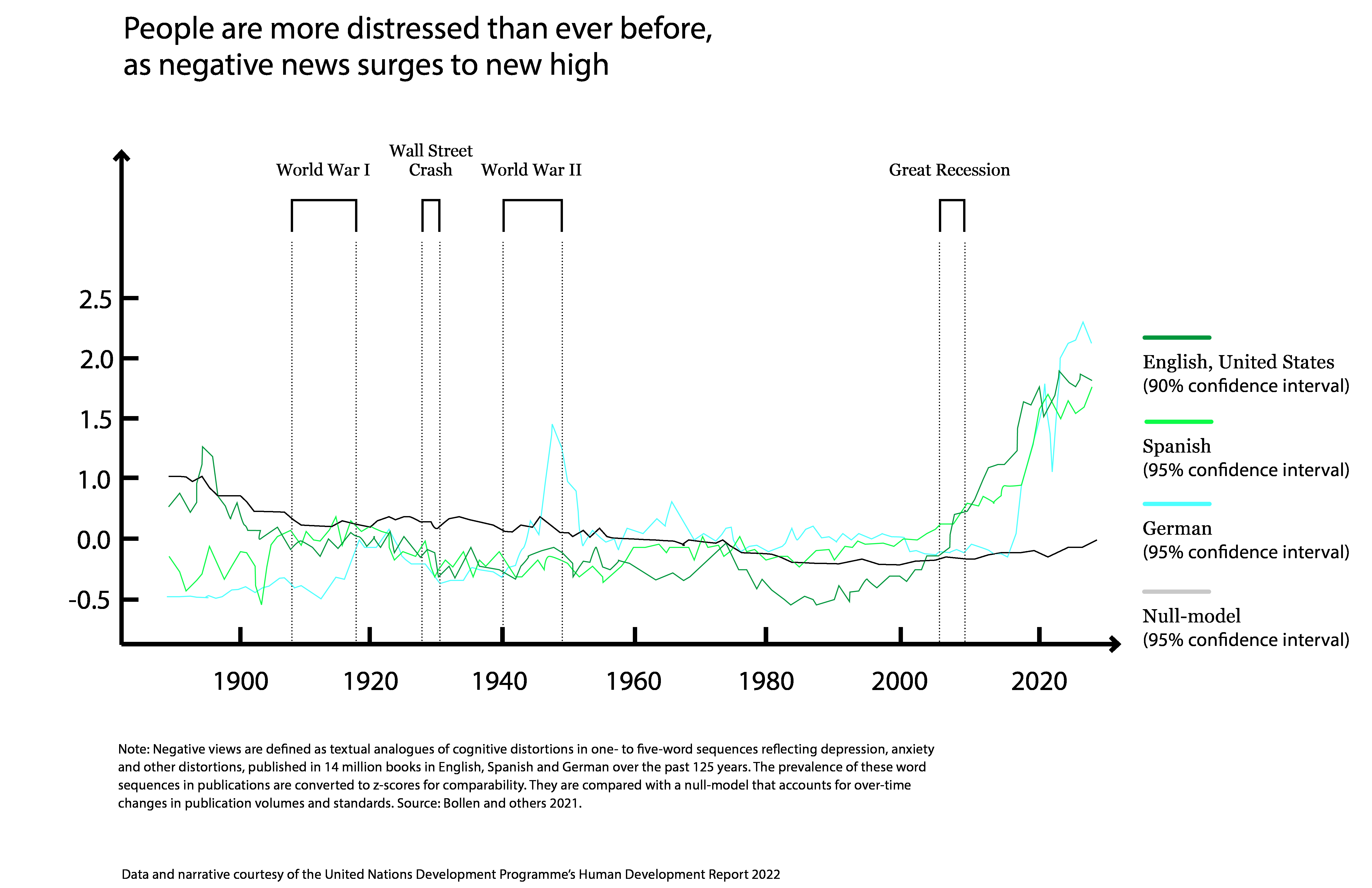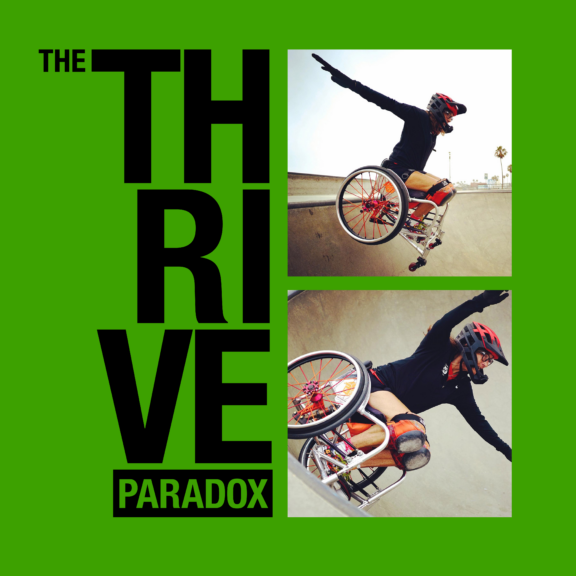ARTICLE
Help us thrive, not just survive.
The German people are striving for better in 2023. Here’s how brands can stand with them.
by Nia Evans, Head of CEE, C Space
Choose to thrive.
In 2022, C Space launched the Thrive report, a quantitative and qualitative study with over 500 people in 5 markets. It introduced the ‘The Thrive Paradox,’ the observation that, while there are more ways than ever to live well, people feel worse off. It posed that while the customer is currently underserved by the $10 trillion health, wellness and wellbeing category, this presents a huge opportunity for brands.
In 2022, we saw the Thrive Paradox play out in technicolor in the German market. At first glance, Germany is a country where thriving is possible: a relatively stable economy, progressive social policies and world class healthcare. Yet, a recent Allensbach survey for the Frankfurter Allgemeine Zeitung newspaper found that, for most Germans, 2022 felt like the worst year in a long time. The United Nations Development Programme’s Human Development Report for 2022 shows distress in Germany being higher than in many other countries.
Why there’s a disconnect is obvious: growing uncertainty. Threats that feel beyond individual control: the war in Ukraine, rising costs of living and growing polarization among other factors contribute to this uncertainty. In fact, 71% of Germans in our Thrive study believe a worsening economy will negatively affect their ability to thrive.


Everything going on is just plain scary. Hearing on the news about energy costs next year is really scary. It makes me sad because I don’t know what to do.
Thomas, Interviewee from Germany
A new zeitgeist of optimism.
In recent years, ‘survival mode’ has gripped the German psyche. Growing uncertainty has challenged people’s belief in the possibility of Thriving. They’ve struggled to feel that, right now, through intention and action, life can get better. And their trust in key institutions (The Federal Government and Chancellor, to name a few) has eroded.
Despite this, in 2023, the German people are choosing to thrive. Recent studies reflect an emerging call for optimism. People are hungry for a vision of the future where better lives are achievable and the possibility for progress is credible. The Allensbach survey mentioned above saw optimism prevailing among 14- to 24-year-olds.
This mood reflects a key pivot point; the shift in mindset that can trigger an upward trajectory. Our interviewee Thomas, quoted above, summed this moment up perfectly: “Thriving is an active decision you take.”
Brands that speak meaningfully to this moment will win.
In the past, competition hinged on functional advantages (price, product, promotion, distribution). However, that’s changing. #MeToo, the cost-of-living crisis, The Greta Effect. What started as localized, one-off events, have turned into global forces that have profoundly affected the trade-offs consumers are willing to make. Expectations, simply, are much higher, and for brands to win in this environment, they need to learn to give, as much as they seek to get.
Our hypothesis is that we’re on the cusp of a new phase in business. In the Relationship Economy, customers will seek out brands that feel invested in them. And for businesses, brand-customer relationships will become the most important source of competitive advantage.
Therein lies the opportunity. Brands that use their influence to help people thrive, will win. This takes insight, lateral thinking and bravery.
Get personal, be a partner and stay present.
Brands that help people to thrive don’t do it through grand gestures, or lofty promises, or outsized ambitions. They go deeper to understand the real human need that sits at the heart of their industry. And offer practical and emotional support in the everyday work that it takes to thrive.
Here are some examples of brands thinking differently about the products and services they offer to achieve this:
In partnership with Mental Health UK, Lloyds’ bank is offering free therapeutic coaching sessions to small business owners
While Lloyds sells banking services, what motivates customers to seek out their products is how well they support them to run a stable and prosperous business. Lloyds saw that they could build a partnership with customers by supporting them towards this outcome, in different ways.
Deutsche Telekom offered free SIM cards and calls to Ukrainian refugees at the early stages of the conflict, and continue to offer them at lowered rates
In general, it’s hard to say that many have been seen or spoken to with much power by telecoms providers. This example sits in dazzling exception. With this move, DT spoke with a clear voice about the human need at the heart of their industry – connection.
IKEA’s Circular Hub helps customers to give old furniture a new lease of life – whether buying, selling or upcycling
IKEA knows that while they sell furniture, their unique value comes in the impact it has on people’s lives. And they want to make an impact through togetherness. Their Circular Hub offers a practical way for the brand and its consumers to collaborate on something fundamental to togetherness: protecting our planet.
THE THRIVE PARADOX
What it really means to thrive, and how brands can play a role in getting consumers there.
What does it take to live well today? What are some of the barriers? And what permission do brands really have to help their customers get better at living?
C Space and Interbrand partnered to answer these questions (and many more).


